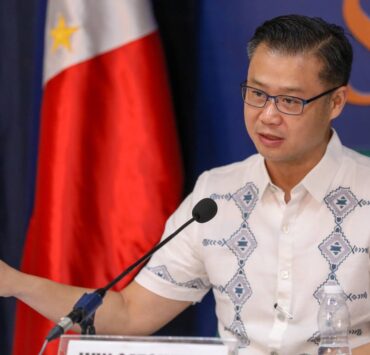2017 case draws dissenting views on who can seek annulment

Four Supreme Court associate justices dissented from the majority ruling of the high court, which said that only the injured spouse—not the one who knowingly entered a bigamous marriage—can petition to nullify it.
“To be abundantly clear, even unfaithful wives who cheat on their husbands are entitled to the full measure of protection of the law, as morally objectionable as their infidelity may have been,” Associate Justice Amy Lazaro-Javier wrote in her 15-page dissenting opinion on G.R. No. 259520.
Even if the petitioner was promiscuous and disrespectful of her husband—though there was no evidence to that effect—Lazaro-Javier said the petitioner should still be entitled to the same protection as all women have the right to receive.
“This should not entitle the State or the Court to strangle her into a marriage that in law is clearly void,” the associate justice said.
Ten of the 15 Supreme Court justices voted to deny the petition filed by Maria Lina Quirit-Figarido seeking to have her marriage with Edwin Figarido declared void for being bigamous and to establish her right to remarry.
Three justices, including Lazaro, Associate Justice Rodil Zalameda, and Senior Associate Justice Marvic Leonen, dissented.
Associate Justice Samuel Gaerlan was on official leave while Associate Justice Ramon Hernando, who was on official business, also disagreed with the majority’s ruling.
Lina married Ho Kar Wai, a Chinese national, in 1989 (Hong Kong) and 1994 (Philippines).
While still married to Ho Kar Wai, she married Edwin in 2003 in the Philippines. Four years later, Ho Kar Wai obtained a divorce in Hong Kong, which was later recognized in the Philippines in 2009.
Bases of the majority
Lina and Edwin separated in 2014 and in 2017, she filed a petition for declaration of nullity of her marriage with Edwin on the ground of bigamy.
The high court in its decision cited Juliano-Llave v. Republic and Fujiki v. Marinay, which indicated that only the “innocent spouse” from either the first or second marriage can file for nullity.
“Inasmuch as Maria Lina is not the aggrieved or injured spouse in her prior marriage, she lacks the legal capacity to petition the declaration of nullity of her subsequent marriage,” the Supreme Court said in the decision penned by Associate Justice Ricardo Rosario.
In her opinion, Lazaro-Javier pointed out that Section 2(a) of A.M. No. 02-11-10-SC states that either the husband or wife in a void marriage can file a petition to nullify it.
She noted that the rule does not distinguish between the “guilty” and “innocent” spouse.
Lazaro-Javier further argued that the petitioner acted in good faith, relying on a lawyer’s advice that she could remarry after her first husband was absent for seven years.
“Precisely because Maria Lina is a layperson who is not learned in the intricacies of the law, she naturally believed and heeded the lawyer’s advice. Thus, she should not be faulted for truly believing that there was no legal impediment if she married Edwin,” she said.
Zalameda in his own dissenting opinion said that there was no provision in the Family Code that says only the innocent spouse can file a petition for declaration of nullity of marriage, adding that AM No. 02-11-10-SC is merely a procedural rule and cannot override substantive law.

















